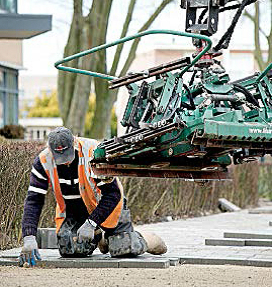How can we prepare for an ageing workforce? These 3 reports focus on workplace infrastructure and older people’s roles as workers, volunteers and carers.
http://www.gettyimages.co.uk/detail/photo/at-the-drafting-table-royalty-free-image/BU004703
The average age of the UK population is expected to increase significantly over the coming decades, affecting society as a whole. According to the ONS, the proportion of the UK population aged 65+ is projected to reach 24.3% by 2037.
At the Future of an Ageing Population project, we aim to help government improve the quality of the ageing experience in the UK and ensure that the impact of population ageing is as positive as possible for citizens of all ages.
One of the ways we hope to achieve this is by bringing together the best academic evidence as a resource for policymakers and others. Over the summer we will be publishing a series of evidence reviews on a range of themes such as housing, lifelong education, technology, health and much more. These are not statements of government policy, but reviews of the existing research around issues relevant to the ageing population by independent experts in their field.
These 3 reviews focus on work in an ageing population and on workplace infrastructure. A big thank you to all the authors for their valuable contribution to the project.
Changing the workplace

(source: TNO, Netherlands)
Professor Peter Buckle’s paper on workplace infrastructure examines the literature on the built environment and technology infrastructure to consider changes that will enable people to extend their working lives.
He looks at the barriers faced by older workers in different sectors, how workplaces can overcome these and the fact that older workers are considered valuable employees because of their knowledge, skills and experience. BMW’s ‘Today for Tomorrow’ programme, for example, has used a co-design approach to introduce a range of small changes that improved the efficiency of an experimental production line for their age-diverse workforce.
Changing workplace environments and attitudes
Dr Sheena Johnson’s paper considers the changing workplace environments and attitudes that will be experienced by people reaching 65 in 2025 and 2040.
The author finds significant differences between the experiences of these 2 groups. Those reaching 65 in 2025 will face many of the same barriers as today’s 65 year olds - including lower levels of training compared to younger people, as well as other forms of age discrimination. They will also have similar expectations of retirement, having spent the majority of their working lives anticipating it at around the age of 65.
Fast forward to 2040, and the author anticipates significant change. Perhaps most interestingly, today’s 40 year olds, as they turn 65, will not expect or be expected to retire at a pre-determined age. Instead, their retirement will increasingly be decided by personal circumstances and preferences and their ability to continue performing at work. Importantly, the author also predicts that 2040 will see significant improvements in attitudes to older workers.
Work, informal care and volunteering
Professor James Nazroo’s paper focuses on the interplay between roles related to paid work, volunteering and informal care provision in later life, and how these activities relate to health and wellbeing. This documents the significant role the over 50s play in the provision of care (for older parents, partners and grandchildren), and wider volunteering. While there is much debate in the literature, he finds that involvement in paid work and volunteering roles is likely to have a positive impact on wellbeing if these roles are of good quality.
The insights from these papers combine to provide a fascinating picture of what the UK’s ageing population will mean for our workplaces and the people in them.
We’d love to know what you think. What are the main drivers of change here? Are we missing a crucial bit of evidence? Please leave your comments below.
Featured image by Vicky Hodgson. Photograph provided courtesy of the Age Action Alliance.
Sign up for email alerts from this blog, or follow us on Twitter.

1 comment
Comment by Brian Kent - TRCRC posted on
From eight years dedicated experience 'at the coalface' - one principal solution emerges: - As a matter of urgency, there must be central initiatives to promote the employment of all, of whatever age, who are able and willing.
The so called 'demographic' is an International phenomenon first recognised over 40 years ago.
Procrastination can no longer serve any purpose whatsoever.
As other Countries have realised, an age integrated workplace, provides huge benefits for Society as a whole - Politically, Socially and Financially.